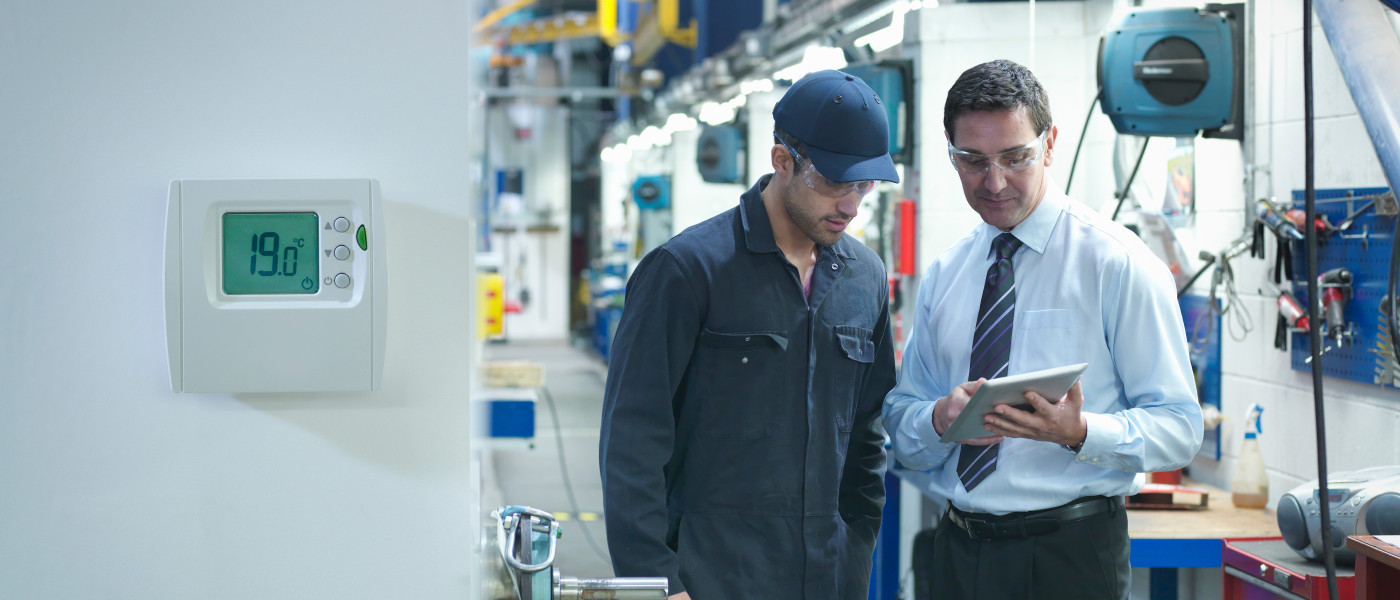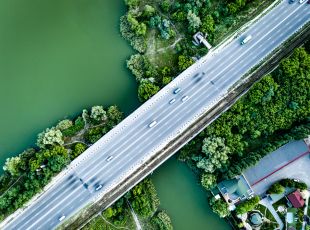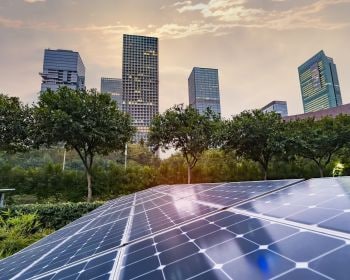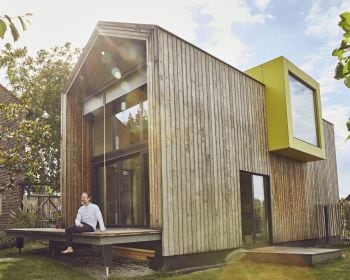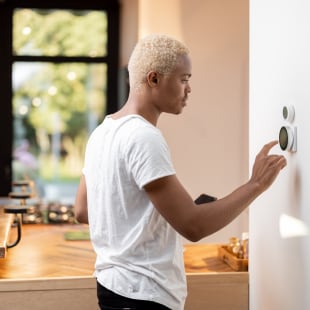BNP Paribas is fully aware of these challenges that are at the heart of its strategic priorities. To this end, the Group has been pursuing and stepping up its efforts towards energy efficiency and sobriety. Over several years now a proactive approach to this issue has been adopted by renovating and modernising its office and branch buildings, limiting its consumption of lighting, heating and air conditioning, and encouraging employees to adopt a virtuous attitude on a daily basis. Furthermore, the Bank has developed a wide range of solutions to help its corporate, professional and individual customers optimise or reduce the energy requirements of their business activities and daily lives.
Helping corporate clients implement their energy efficiency plans
As a bank for businesses around the world, BNP Paribas aims to support them in their development towards sustainable growth. Helping them to save energy is clearly an integral part of this.
Promoting solutions stemming from CleanTech and GreenTech startups
Through BNP Paribas Principal Investments, in 2018 the Bank acquired a stake in the French startup Metron, a CleanTech expert in energy efficiency and business performance improvement. In November 2022, BNP Paribas CIB extended this collaboration by signing a partnership to offer 100 companies, operating industrial sites across Europe, access to Metron's digital platform. Thanks to this innovative tool based on artificial intelligence, the sites will be able to measure, compare and optimise their energy consumption. The goal is to achieve substantial energy savings while reducing CO2 emissions by 100,000 metric tons after two years, or between 5% and 20% of each site's emissions, depending on its sector of activity.
BNP Paribas Leasing Solutions, the European leader in the financing and leasing of professional equipment, enabling its clients to acquire modern, more efficient, less polluting and less energy-consuming equipment. For businesses and local authorities, BNP Paribas Leasing Solutions finances, for example, intelligent indoor and outdoor lighting solutions developed by GreenTechs, which combine LED technology with presence detectors to minimize energy consumption. For its industrial clients, the assets financed may be “speed dimmers” that optimise motor or pump efficiency generating electricity savings of 30 to 50%.
In Poland, BNP Paribas Bank Polska, in collaboration with CIB's teams in South Korea, granted a EUR 70 million "green real estate" loan to South Korean developer GS E&C for the construction of goods warehouses that meet the highest energy-saving standards. The project has received BREEAM "excellent CSR" certification, a distinction awarded to less than 10% of buildings.
Working with individual clients in their efforts to save energy
Housing, a major energy consumer
In France, buildings account for nearly half of all energy consumed. According to the ADEME, two-thirds of this energy consumption comes from housing, which all too often suffers from inadequate insulation or an unsuitable heating system in older homes. On the other hand, the most recent housing often benefits from very good energy performance. Thus, 100% of residential buildings constructed by BNP Paribas Real Estate are certified and labelled with compliance checks issued by an independent body. A guarantee for their occupants of compliance with the regulations in force (thermal, acoustic) and a controlled energy consumption.
At home, if the eco-gestures that contribute to reducing day-to-day energy expenses such as heating less in winter, using less air conditioning in summer or optimsing the use of electrical appliances are within everyone's reach, the Bank has a key role to play in helping its customers maintain and renovate their homes, by providing advice and financing offers that are best adapted to their needs.
In France, BNP Paribas established a partnership with the company Economie d'Energie SAS, an expert in energy renovation, to help its customers with their renovation projects. Whether they are changing their heating system, insulating their house or apartment, or switching to solar energy, Mon Projet Rénovation (my renovation project) allows homeowners to prioritise their renovation projects thanks to an energy audit and an estimate of associated costs. They can then check for eligibility and conditionsto receive financial aid from the government and energy suppliers for the work, and identify the best financing solution with the Bank.
Lastly, in Poland, where, as part of the “Private Finance for Energy Efficiency programme” of the European Commission and the European Investment Bank, BNP Paribas Bank Polska has supported the energy efficiency investment projects of 24,000 beneficiaries resulting in cumulative annual energy savings of more than 33,000 megawatts. And a new agreement related to this program has recently been signed to continue these efforts.
Experts in the field, for all budgets
BNP Paribas Personal Finance, Europe's leading personal finance company, offers its customers, particularly those on low incomes, preferential rates for financing energy-efficient home improvements. In partnership with EDF (Electricité de France, France’s main electricity provider), BNP Paribas Personal Finance created Domofinance in 2003, the only banking institution exclusively dedicated to energy renovation and home improvement projects. By 2021, Domofinance had financed more than €500 million in energy renovation projects. One of its flagship products, the "Coup de pouce pompe à chaleur" ("Push for heat pumps") offer, makes it possible to replace a carbon-based heating system using sources such as coal, oil or inefficient gas boilers with a heat pump. This significantly reduces CO2 emissions - between 70% and 90% depending on the technology replaced - but also optimises energy performance. In 2021, over 13,000 households had subscribed to the offer, a third of which were low-income households where controlling energy costs is a priority.
The transition to a low-carbon economy to reach net zero by 2050 requires the simultaneous activation of multiple levers. For businesses and individuals alike, this means reducing energy consumption and increasing the use of renewable energy. BNP Paribas, which has made sustainable finance its core business, is resolutely committed to helping its clients achieve this goal.

